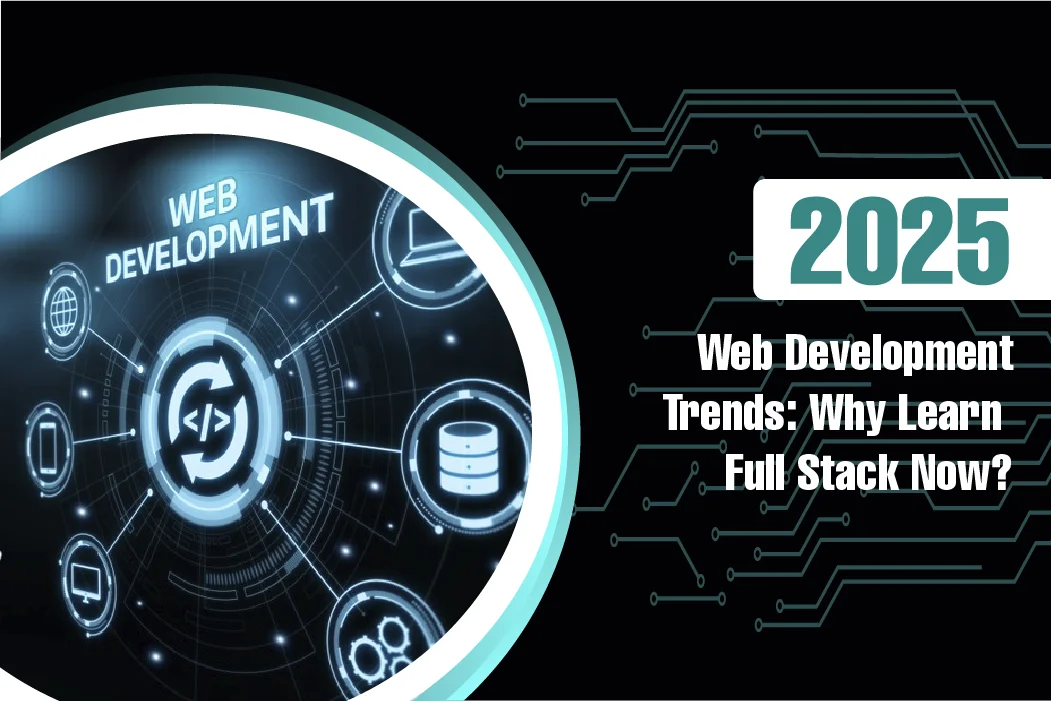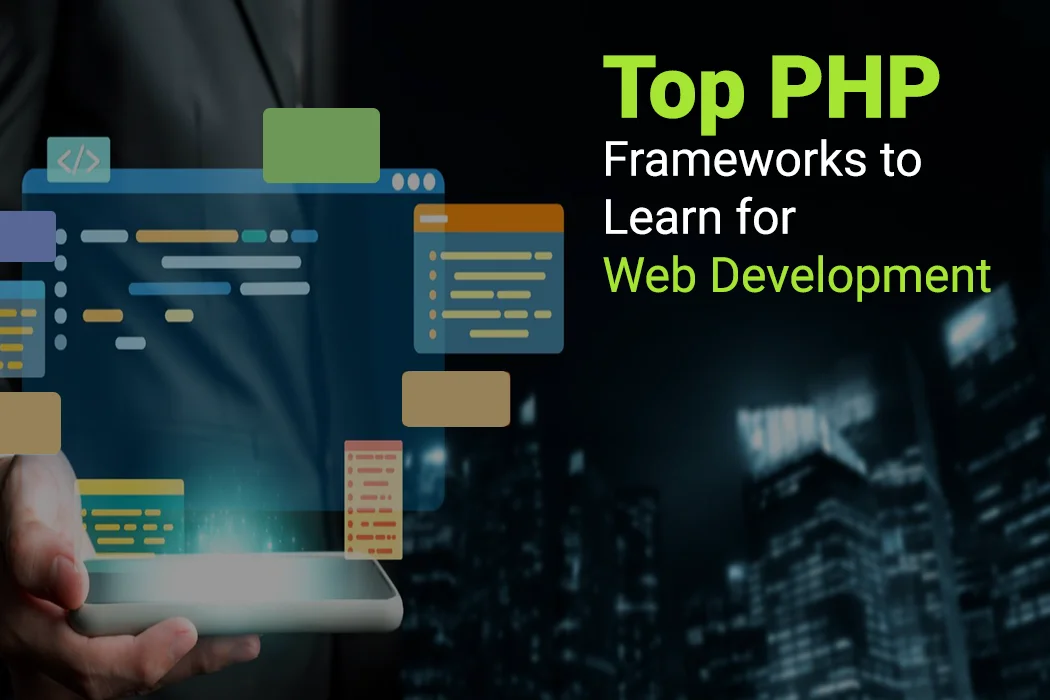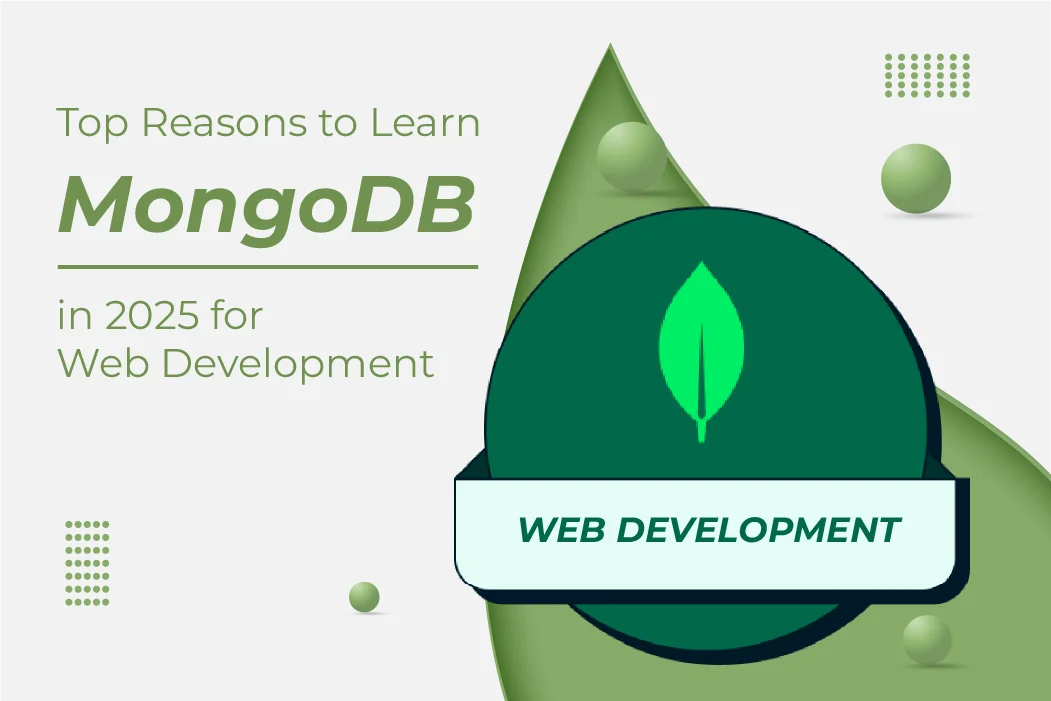
2025 Web Development Trends: Why Learn Full Stack Now?
Let me be honest with you. If you're thinking about getting into web development or you're already coding but wondering which direction to go, this might be the most important article you read this year.
I've been watching the tech industry for years, and what's happening in 2025 is something special. The lines between frontend and backend development aren't just blurring—they're practically disappearing. And if you're not positioning yourself as a full stack developer, you're missing out on some incredible opportunities.
What's Really Happening in Web Development Right Now
Here's the thing everyone's talking about but not everyone understands: web development in 2025 isn't the same beast it was even two years ago.
I remember when you could get by being really good at just React or just Node.js. Those days? They're over. Companies don't want specialists anymore—they want problem solvers who can see the big picture.
Why? Because startups need to move fast, and big companies are trying to act like startups. Nobody has time for the old "throw it over the wall" mentality where frontend devs build interfaces and backend devs build APIs, and somehow they're supposed to work together perfectly.
The reality is brutal but exciting: the developers who can do it all are eating everyone else's lunch.
The Trends That Are Actually Changing Everything
Let me cut through the hype and tell you what's really moving the needle in 2025:
AI Isn't Coming—It's Here
Look, I get it. Everyone's been talking about AI for years. But here's what changed in 2025: AI tools aren't just helping us write code faster (though GitHub Copilot is pretty amazing). We're actually building AI features into our apps.
I built a customer service chatbot last month that would have taken a team of six people two months to create just a year ago. I did it in a weekend using OpenAI's API and some clever prompt engineering. That's not bragging—that's just reality now.
If you're not learning how to integrate AI into both your frontend interfaces and backend logic, you're going to be left behind. Period.
The Edge is Where It's At
Remember when we used to worry about server response times? Now we're pushing everything to the edge—closer to users, faster responses, better experiences.
Serverless functions and edge computing aren't buzzwords anymore. They're how modern apps work. And guess what? You need to understand both the frontend implications and the backend architecture to do this right.
WebAssembly is Getting Real
I'll admit it—I was skeptical about WebAssembly for years. It felt like a solution looking for a problem. But in 2025? I'm building data visualization dashboards that would have been impossible in pure JavaScript just two years ago.
The performance gains are real, and the use cases are expanding rapidly. If you can work with both traditional web tech and WASM, you're golden.
PWAs Grew Up
Progressive Web Apps aren't just "websites that work offline" anymore. They're legitimate alternatives to native apps, and businesses are finally catching on.
I've seen companies completely replace their iOS and Android apps with PWAs this year. The development cost savings are massive, and the user experience gap has basically disappeared.
Why Full Stack Development is Your Best Bet Right Now
Here's where I'm going to get real with you about why full stack is the way to go:
You Become Unstoppable
When you understand the entire stack, you stop being dependent on other people to get things done. Need to optimize a slow API call? You can do it. Want to improve the user experience based on backend data? You can do it.
I've seen full stack developers get promoted faster, get better job offers, and have more fun with their work because they're not constantly waiting for someone else to fix their problems.
You Get the Interesting Projects
When something important breaks or when there's a cool new feature to build, who do you think gets the call? The specialist who can only work on part of the problem, or the full stack developer who can handle the whole thing?
I've worked on everything from real-time chat systems to AI-powered recommendation engines because I could see how all the pieces fit together. That's where the fun is.
Remote Work is Easier
This might sound weird, but full stack developers are perfect for remote work. Companies trust you more because you can work independently. You don't need constant coordination with other team members to get simple things done.
During the pandemic, I watched companies hesitate to hire remote specialists because of coordination concerns. Full stack developers? They were getting hired left and right.
What You Actually Need to Learn (No BS Version)
Forget the endless lists of technologies you "must" learn. Here's what actually matters:
Pick One Stack and Go Deep
Don't try to learn everything. Pick one full stack framework and master it:
- Next.js if you want to work at modern companies and startups
- Django + React if you like Python and want something proven
- MEAN/MERN if you want to stick with JavaScript everywhere
I don't care which one you choose, but commit to one and build real projects with it.
Understand Databases (For Real)
You don't need to be a DBA, but you need to understand how data flows through your application. Learn SQL. Understand indexing. Know when to use Redis for caching.
Most "full stack" developers I meet are actually just frontend developers who can copy-paste Express.js code. Don't be that person.
Get Comfortable with Deployment
If you can't deploy your own applications, you're not really a full stack developer. Learn Docker. Understand CI/CD pipelines. Get familiar with at least one cloud platform.
This is where a lot of people get stuck, but it's also where you can really stand out.
Learn to Debug Everything
The most valuable skill I have isn't coding—it's debugging. When something goes wrong in production (and it will), you need to be able to track the problem from the user interface all the way back to the database.
The Realistic Learning Timeline
Everyone wants to know how long it takes. Here's my honest answer based on helping dozens of people make this transition:
If you're starting from scratch: 12-18 months to be job-ready If you're already a frontend developer: 6-9 months to add solid backend skills If you're already a backend developer: 4-6 months to get comfortable with modern frontend
This assumes you're putting in real effort—not just watching tutorials, but building actual projects and dealing with real problems.
The Hard Truth About Challenges
Let me be straight with you about what's difficult:
Everything Breaks Differently
When you're responsible for the whole stack, you get blamed for everything. Database slow? Your fault. UI confusing? Your fault. API returning weird data? Definitely your fault.
This is actually good news in disguise because you learn faster when you're responsible for fixing everything.
You'll Feel Like You Don't Know Anything
There's so much to learn that you'll constantly feel behind. That's normal. The secret is to get comfortable with not knowing everything and focus on solving problems with what you do know.
Keeping Up is Exhausting
The JavaScript ecosystem changes constantly. New frameworks appear every month. It's overwhelming.
My advice? Pick your core technologies and stick with them for at least two years. Let other people chase the shiny new things while you get really good at solving real problems.
What I Wish Someone Had Told Me
If I could go back and give myself advice when I was starting out:
Build stuff people actually use. Stop building todo apps and weather apps. Build something for your friends, your family, or your community. Real users will teach you more than any tutorial ever could.
Focus on solving problems, not learning technologies. Technologies come and go. Problem-solving skills last forever.
Find a community. The learning process is way easier when you have people to ask questions and share struggles with. Join Discord servers, go to meetups, contribute to open source projects.
Don't wait until you're "ready." You'll never feel ready. Start applying for jobs when you can build something functional end-to-end. You'll learn more in your first three months on the job than in your last year of studying.
The Bottom Line
Look, I'm not going to sugarcoat this: becoming a full stack developer is hard work. There's a lot to learn, and the technology keeps changing.
But here's what I know after watching this industry for years: the developers who can see the big picture and build complete solutions are the ones who have the most opportunities, make the most money, and have the most fun.
The trends happening in 2025—AI integration, edge computing, WebAssembly, advanced PWAs—all favor developers who understand the full stack. Companies need people who can navigate this complexity and ship products that work.



